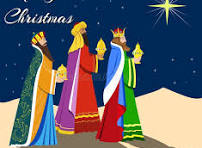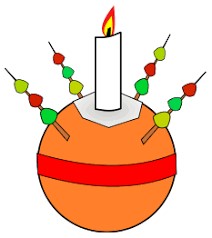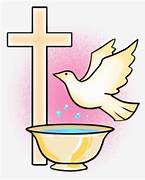The Fires of Wisdom

St Luke’s Day 2025
This morning I want to talk about wisdom. It’s one of those big words that can’t be contained by any one description, or philosophy, or religion. Indeed it often eludes definition. It lends itself to story, and stories, which is a medium for trying to get a handle on that which has many.
Our first reading is a parable by the late Anthony de Mello. It uses the metaphor of fire to refer to the wisdom that provides light, illumination, and vision. Like fire, wisdom can give warmth, comfort, and nurture. Like fire, wisdom can give energy, power, and vitality. De Mello's story encourages us to make fire, to engage with the spirituality found in wisdom, and to encourage and show others the same.
De Mello's story, like in the best of the Progressive Christian tradition, is a subversive one for it suggests that such wisdom is out of the control of the priests and their religion. You don't have to come to church to make fire. You don’t have to agree with the minister to make fire. You don't have to swear allegiance to any creed, Bible, or Book of Order make fire. Instead church life, activities, worship, and ministry all need to be evaluated in terms of how useful they are in promoting the wisdom of compassion, beauty, and the common good. What we do needs to be thought of in terms of how we help make fire.
So lighting a spiritual fire is not dependent on coming to a church and getting a bit of flame to take home, or having a minister or elder come to your home to light it, or undertaking years of study to be an expert yourself. Rather lighting a spiritual fire is something that can be learnt in many places from many different people.
In my experience the spirituality of wisdom is fostered when children are seen as teachers; where interaction with animals is encouraged; when music and art and people are valued more than profits and buildings and performance; where our earth is seen as physically part of, intwined with, us; when the fences of class, race, gender, orientation, or physical ability are pulled down; and where kindness, generosity, and hospitality are recognized as the foundation stones of any faith.
Making spiritual fire can happen alone or with others - in homes, workplaces, outdoors, or in churches. Anyone can learn to make fire – though humilityhelps. Children and the marginalized often innately know it. The rich and powerful often forget it and lose their bearings. At its best Sunday church is a fire that encourages the outbreak of lots of little fires of transformative wisdom.
+
There is a collection of books in the Bible called ‘Wisdom Literature.’ They are the Book of Job, some of the Psalms, the Book of Proverbs, the Book of Ecclesiastes, the Song of Songs, and maybe a couple of others.[i] These writings show no interest in official religious beliefs and practices, and we would now describe them as secular. They tend to avoid talking too much about God (Song of Songs never mentions God), and when they do it’s usually in terms of creation and choices, rather than covenants, commandments, and chosen people.
The Book of Job is a parable on the vexed question of why bad things happen to good people, and the fraught default position of blaming the suffering for their suffering. In the story Job is a good and righteous man who is beset by calamity after calamity. His friends, ironically called ‘Job’s comforters,’ trot out the usual explanations for misfortune which Job then vehemently refutes. By the end of the book Job’s lot has greatly improved, but the reason – if there is a reason – is never clear. God, luck, fate, and serendipity seem closely intertwined.
In broad terms the ethical message of the Book of Job is to be kind, compassionate, and non-judgemental towards those suffering. And, also, to be at least agnostic, if not skeptical, about the agency of a deity in the causation of suffering. It is not kind or true to tell someone their plight is ‘God’s will’. The Book of Job is a perspective on how to act with wisdom.
I won’t say much about what could be called the wisdom Psalms (what is and isn’t such a psalm is much debated). Save that – like all the psalms - they are a mix of praise and lament, meditation and exhortation, and are full of God-language. For the word ‘God’ is best kept in poetry, and these are poems.
More importantly, they are poems put to music. They are songs to sing, the tunes of which are forever lost. (Though musicians have written new ones.) And like any piece of religious music, ultimately it is not the words that matter but the feelings (which can be aided by the words) that the music evokes. Music itself is a path to wisdom. As Beethoven said, “Music is a higher revelation than all wisdom and philosophy.” Music is a doorway to beauty, which is a door to the soul, which is the wellspring of all ethical actions.
The message of the Book of Psalms is simply: sing. Sing through all your changes of life and faith. Sing in joy, sing in grief. Sing in groups, sing alone. Sing for whatever reason in whatever place. But know, if you encourage it, music is making something of beauty inside you. This is a path of wisdom.
The Book of Proverbs is a collection of writings and sayings. These collections have been gathered from the sages of various cultures, and give us insight into those cultures. Chapters 1-9, for example, come from the Egyptian Court. Other writings from Ugaritic literature (Ugarit is within modern day Syria). Many of the authors therefore are not of the Jewish faith.
The sayings and aphorisms commend the ‘right path’ or course of action, but don’t really grapple with ambiguity. So, for example, the couplet ‘Spare the rod(i.e. the teaching of the Torah), and spoil the child’ seems to presume that, like many a fundamentalist today, the Bible is clear and unequivocal guidance. Whereas, actually, the Torah, and the rest of the Bible, gives conflicting and contradictory messages about child rearing.
The Proverbs also reflect the class bias of those at court and responsible for administrating a kingdom. As bureaucrats, they like black and white rules. As privileged, they also like personal responsibility – namely that any action or situation is the result of a personal decision, not the outworking of systems that favour a wealthy or ruling class.
In summary, I think the Book of Proverbs is best thought of as a pointer to the truth that no one culture, class, or faith, has a monopoly on wisdom. Wisdom, like the making of fire, goes where she wills and makes a home among all manner of people where she wills.
The Book of Ecclesiastes has God distant, unknowable, and thus irrelevant. The reality for the author is that death comes to us all, and the book broods on the futility of seeking to avoid it. It is not though a melancholy read, rather it is a search for the meaning of life, and to use De Mello’s parable, a search for the fire without falling into the certainties of the priestly type of religion.
So, in summary, Ecclesiastes is quite a courageous little book that concludes with an affirmation of life, and the wisdom of enjoying it, in each moment, and in what circumstance we find ourselves.
Lastly, I come to the Song of Songs. It is absolutely wonderful that this book made it into the Bible and avoided the censorship police. It is about a couple in love. It presents a romantic experience that elaborates unashamedly and unapologetically the physical pleasures of love, set in a context of fidelity and mutuality. This is not the same elsewhere in the Bible!
It is a contentious book in that it affirms female, as well as male, sexuality. It counters some of the then popular notions about beauty (as if beauty fits one physical ideal form or way of being). It insists on a woman’s and man’s right to love whomever their heart chooses, irrespective of prevailing cultural norms. (It seems likely the couple were of different ethnicities and/or classes).
In summary this subversive book extolls the commitment of love and the joy of romance as a path of wisdom. The sensual, the spiritual, and the sacred intermingle. To quote Leo Tolstoy: ‘Where love is, God is.’
So, in a penultimate conclusion, this body of literature points to paths of wisdom:
- From Job: the path of being non judgemental and kind. Including being careful with conclusions around God and suffering.
- From Psalms: the path of poetry, music, song, and the beauty they can create.
- From Proverbs: the path of learning wisdom from other cultures, faiths, and experiences, and putting them alongside our own.
- From Ecclesiastes: the path of celebrating life in each moment, no matter what, no matter when.
- And from the Song of Songs: the path of committed mutual love, no matter what, no matter who.
These paths of wisdom can give substance to the fire, from De Mello’s story, that we are learning to make and share.
They also, to my mind, give substance to the Gospel text today from Luke 10:1-9.When this story is pulled apart, and sources (like the ‘70’ from the Book of Numbers) identified, I would suggest it reveals an early organic model of faith, where people from one community or household went and shared food and peace with another. And often there was healing – maybe in the listening to and sharing of lives, in the exchange of remedies, or in the breaking down of barriers. At its simplest, this is the wisdom of going to meet, eat, learn, give to, and share with another. And to my mind this is the sort of fire-making that Jesus was doing and encouraging.
Though our context today is different the challenge to find organic ways to make and share the fire of wisdom is still with us. And, I think, it will be by doing simple things. Listening. Being kind and not judgemental. Singing. Learning from other cultures and experiences. Celebrating in the moment. Enjoying and fostering love, however it comes. And in all these simple, everyday things, realizing that we kindling the fire of God in our midst.
[i] There is some debate over which books are Wisdom Literature. Some include some psalms that others don’t, some exclude the Song of Songs. The Book of Sirach and the Wisdom of Solomon are not included in the Protestant Bible.




